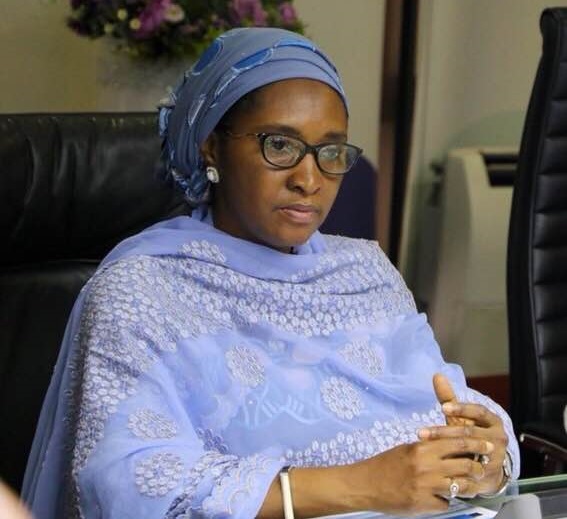
This is contained in a rating report issued by Moody’s on October 21 2022 indicating that the decision was due to a significant deterioration in Nigeria’s government finances as well as its external position.
Moody’s stated that the deterioration of government finances exerted increasing pressure on the sovereign credit profile despite a strong increase in international crude oil prices in 2022.
What this means
A rating downgrade has negative implications for Nigeria, especially for its bondholders who are mostly foreign investors.
- When a global rating agency like Moody’s downgrades Nigeria, borrowing costs from the international debt markets become more expensive raising Nigeria’s borrowing costs.
- This is because investors also assign a higher risk rating to the bonds due to the downgrades and will demand higher interest on fresh bonds.
- It could also affect current bonds driving yields upwards as investors sell off the bonds due to rating downgrades.
Moody’s downgrade breakdown
Moody’s explained Nigeria’s fiscal challenges and dwindling external reserves contributed significantly to the decision to downgrade the country’s ratings from B2 to B3.
- “Moody’s Investors Service (Moody’s) has today downgraded Nigeria’s local currency and foreign currency long-term issuer ratings as well as its foreign currency senior unsecured debt ratings to B3 from B2 and placed them on review for downgrade. Concurrently, Moody’s downgraded Nigeria’s foreign currency senior unsecured MTN rating to (P)B3 from (P)B2, also and placed it on review for downgrade.”
Moody’s also pointed out Nigeria’s oil revenue challenges despite a rise in oil price while also pointing out the depreciation of the naira due to demand pressure as specific factors that influence the downgrade.
- “The steep fall in oil production in 2022 and the extension of the expensive oil subsidy have almost entirely eroded the boost to government revenue and exports that would otherwise have been anticipated from higher oil prices. Policy levers available to manage weaker oil revenue and rising borrowing costs amid monetary tightening in Nigeria and globally are limited.”
- “Similarly, on the external front, the capacity of the Central Bank of Nigeria (CBN) to protect foreign exchange reserves from external outflows has its limits.”
The rating review pointed out that government revenues deteriorating affect the ability of the government to service its debts placing the country at risk of default.
- “The initiation of the review for downgrade is prompted by the risk that the ongoing fiscal and external deterioration accelerates, weakening further the government’s capacity to service debt and thereby increasing further its risk of default.”
Rating information: Concurrently, Moody’s has lowered Nigeria’s local currency (LC) and foreign currency (FC) country ceilings to B1 and B3 respectively, from Ba3 and B2 respectively. The LC country ceiling at B1 remains two notches above the sovereign issuer rating, incorporating some degree of unpredictability of government actions, political risk and the reliance on a single revenue source. The FC country ceiling at B3 remains two notches below the LC country ceiling, reflecting significant transfer and convertibility risks given the track record of imposition of capital controls in times of low oil prices or falling oil production.
Moody’s cites Finance Minister’s comment
In further explaining the rating decision, Moody appears to have referenced recent comments by Nigeria’s minister of finance, Zainab Ahmed, that the country was considering a restructuring of debts.
- The debt management office has come out to deny this claiming she was quoted out of context.
- However, Moody appears to have considered this as confirmation that the country views debt service as a challenge to cash flow.
- “The review will focus on understanding the Nigerian authorities’ strategy to address both domestic and external pressure and assessing the associated default risk for the government’s private creditors. On 13 October 2022, the government publicly stated possible options, consisting of extending the maturity of its debts, including through potential bond buybacks or exchanges, which may constitute a distressed exchange under Moody’s default definition.”
What Nigeria needs to do to get a rating upgrade
According to Moody, an upgrade will be considered if the country is able to improve its revenues, especially from oil and gas.
- “Moody’s would likely downgrade Nigeria’s rating if it concluded that fiscal and external pressure is likely to continue to intensify, with the government’s funding options narrowing further. Should Moody’s assess that the likelihood of default, including through a distressed exchange, has increased, the rating may be downgraded by multiple notches.”
- “Should Moody’s conclude that a sizeable devaluation is highly likely, downward pressure on the rating would develop too.
- Conversely, Moody’s would likely confirm Nigeria’s rating at the current level if it expects that the fiscal and external pressure, including those arising from the oil sector, will ease. A clear, prudent medium-term funding plan would support Moody’s view that the risk regarding debt service payments is consistent with the current rating.”
